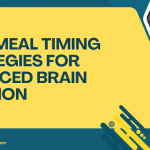Table of Contents
Introduction
In today’s fast-paced world, maintaining brain health is more crucial than ever. With increasing evidence linking diet and cognitive function, choosing the right meal plan can be a game-changer for your mental clarity and memory. In this article, we’ll explore five meal plans that not only nourish your body but also promote lasting brain health. Whether you’re looking to enhance focus, improve memory, or simply maintain cognitive function, these diets offer diverse, delicious options.
“You are what you eat”—an age-old adage that rings especially true when it comes to brain health. Nourishing your brain can lead to clearer thinking, improved memory, and a more vibrant life.
Mediterranean Diet
The Mediterranean diet is celebrated for its heart-healthy benefits, but it also plays a vital role in brain health. This meal plan emphasizes whole foods, healthy fats, and plenty of fruits and vegetables.
Key Components:
- Healthy Fats: Olive oil is the primary fat source, rich in monounsaturated fats that reduce inflammation.
- Fruits and Vegetables: Aim for a colorful variety; berries, leafy greens, and cruciferous vegetables are particularly beneficial.
- Whole Grains: Choose whole grains like quinoa, brown rice, and whole wheat bread for sustained energy.
- Nuts and Seeds: Walnuts and flaxseeds provide omega-3 fatty acids, essential for brain function.
- Fish: Fatty fish like salmon are loaded with DHA, a type of omega-3 linked to improved cognitive function.
Benefits:
- Enhanced Memory: Studies have shown that following a Mediterranean diet can improve memory and overall cognitive function.
- Reduced Risk of Dementia: Research indicates a lower incidence of Alzheimer’s disease among those who adhere to this diet.
Sample Meal Plan:
| Meal | Example Dish |
|---|---|
| Breakfast | Greek yogurt with berries and honey |
| Lunch | Quinoa salad with chickpeas and veggies |
| Snack | A handful of walnuts |
| Dinner | Grilled salmon with steamed broccoli and olive oil |
For more information on the Mediterranean diet, check out Harvard Health. Also, explore the top 5 reasons neuro care is essential in modern medicine for more insights on how nutrition can play a role in brain health.
DASH Diet
The Dietary Approaches to Stop Hypertension (DASH) diet is primarily known for lowering blood pressure, but it also supports brain health through its focus on nutrient-rich foods.
Key Components:
- Fruits and Vegetables: Aim for 4-5 servings of each daily.
- Whole Grains: Include 6-8 servings of whole grains like brown rice and whole-wheat bread.
- Lean Proteins: Opt for fish, poultry, and legumes.
- Low-Fat Dairy: Incorporate low-fat milk, yogurt, and cheese.
- Reduced Sodium: Limit salt intake to less than 2,300 mg per day.
Benefits:
- Improved Cognitive Function: The DASH diet’s rich antioxidant content can reduce oxidative stress, a contributor to cognitive decline.
- Lower Risk of Stroke: Adhering to this diet is associated with a reduced risk of stroke, further protecting brain health.
Sample Meal Plan:
| Meal | Example Dish |
|---|---|
| Breakfast | Oatmeal topped with banana and almonds |
| Lunch | Spinach salad with grilled chicken and vinaigrette |
| Snack | Carrot sticks with hummus |
| Dinner | Baked sweet potato with black beans and salsa |
For more insights, visit CDC on DASH Diet.
MIND Diet
The MIND diet combines aspects of the Mediterranean and DASH diets, specifically designed to enhance brain health and reduce the risk of Alzheimer’s disease.
Key Components:
- Green Leafy Vegetables: Aim for at least six servings a week.
- Berries: Include at least two servings a week for their antioxidant properties.
- Nuts: A handful of nuts daily can boost brain health.
- Whole Grains: Focus on whole grains for sustained energy.
- Fish: Consume fish at least once a week.
Benefits:
- Cognitive Health: Studies suggest that the MIND diet can reduce the risk of Alzheimer’s by up to 53% in those who adhere strictly to its guidelines.
- Better Memory: Regular consumption of berries has been linked to improved memory.
Sample Meal Plan:
| Meal | Example Dish |
|---|---|
| Breakfast | Smoothie with spinach, banana, and almond milk |
| Lunch | Whole grain wrap with turkey and mixed greens |
| Snack | Blueberries and a handful of almonds |
| Dinner | Grilled chicken with brown rice and green beans |
Find out more about the MIND diet at Mayo Clinic.
Ketogenic Diet
The ketogenic diet, known for its high-fat and low-carbohydrate approach, may be beneficial for brain health, especially for those looking to improve mental clarity and focus.
Key Components:
- High Fat: Focus on healthy fats like avocados, nuts, and olive oil.
- Low Carbohydrates: Limit carbs to induce ketosis; include non-starchy vegetables.
- Moderate Protein: Include fish, meat, and eggs as protein sources.
Benefits:
- Enhanced Mental Clarity: Ketones, produced during ketosis, provide an efficient fuel source for the brain.
- Neuroprotective Effects: Research suggests that ketosis may have neuroprotective benefits, potentially reducing the risk of neurodegenerative diseases.
Sample Meal Plan:
| Meal | Example Dish |
|---|---|
| Breakfast | Scrambled eggs with spinach and feta |
| Lunch | Zucchini noodles with pesto and grilled chicken |
| Snack | Celery sticks with almond butter |
| Dinner | Beef stir-fry with broccoli and bell peppers |
For more information, check out Healthline’s Guide on Keto.
Plant-Based Diet
A plant-based diet focuses on whole, minimally processed foods derived from plants. It’s rich in antioxidants and anti-inflammatory properties, which are crucial for brain health.
Key Components:
- Whole Grains: Brown rice, quinoa, and whole wheat products.
- Fruits and Vegetables: A variety of colors and types for a broad spectrum of nutrients.
- Legumes: Beans, lentils, and peas are excellent protein sources.
- Nuts and Seeds: Walnuts, chia seeds, and flaxseeds add healthy fats.
Benefits:
- Reduced Inflammation: A plant-based diet is rich in antioxidants, which can combat inflammation—a key player in cognitive decline.
- Improved Mood: Studies suggest that a diet high in fruits and vegetables can lead to better mental health outcomes.
Sample Meal Plan:
| Meal | Example Dish |
|---|---|
| Breakfast | Chia pudding topped with mixed berries |
| Lunch | Lentil soup with a side of whole grain bread |
| Snack | Apple slices with almond butter |
| Dinner | Stir-fried tofu with mixed vegetables and brown rice |
For more insights, check out Forks Over Knives.
Conclusion
Incorporating a brain-healthy meal plan into your daily routine can significantly impact your cognitive function and overall well-being. Whether you choose the Mediterranean, DASH, MIND, ketogenic, or plant-based diet, remember to focus on whole, nutrient-dense foods that nourish your brain. The key is consistency and making choices that align with your lifestyle and preferences.
“Healthy eating is a form of self-respect.” – Unknown
FAQs
1. Can diet really affect brain health?
Absolutely! A well-balanced diet rich in nutrients has been linked to improved cognitive function, memory, and a reduced risk of neurodegenerative diseases.
2. How long does it take to see benefits from these diets?
While some may notice improvements in energy and mood within weeks, long-term benefits for cognitive health can take months or years of consistent adherence to the diet.
3. Are there any specific foods to avoid for better brain health?
Limiting processed foods, excessive sugar, and refined carbohydrates can help maintain optimal brain function.






